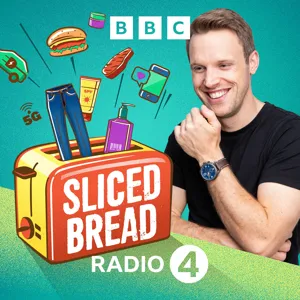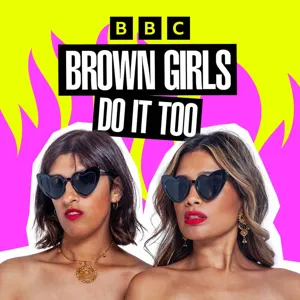Podcast Summary
Discovering Hidden Talent on LinkedIn: LinkedIn is a powerful tool for businesses to find top talent, as many users don't visit other job sites. Accurate fitness tracking on watches can vary, with high-end models offering more precise readings.
LinkedIn is a valuable resource for businesses looking to hire professionals, as over 70% of its users don't visit other leading job sites. This means that great candidates, like Sandra who was mentioned in the podcast, might not be found elsewhere. Additionally, the accuracy of fitness tracker watches was discussed, with it being revealed that they use sensors like accelerometers to record steps and heart rate, but there can be limitations in their ability to detect all steps and may miss some in certain situations. For the most accurate readings, high-end watches may provide better results.
Wearable technology offers health insights through heart rate monitoring, stress scores, and potential ECG readings.: Wearable tech provides valuable health data, including heart rate, stress scores, and ECG readings, though accuracy may vary.
Wearable technology, such as fitness trackers and smartwatches, can provide valuable health insights, including heart rate monitoring and estimation of distance traveled. Some devices can even detect irregular heartbeats, though their accuracy may vary. Stress scores are calculated through heart rate variability, which measures the time between heartbeats and indicates how well the body handles stress. Wearable ECGs have been FDA approved and can be a good indicator for potential health concerns, but should not be the sole basis for health decisions. While some devices claim to measure blood pressure, their accuracy can be limited as they often only measure changes in blood pressure rather than providing an accurate baseline reading.
Comparing Fitness Trackers to Medical-Grade Equipment: Fitness trackers can provide estimates for daily activity but their accuracy and reliability aren't as good as medical-grade equipment. Always consult professionals for medical advice.
While fitness tracker watches offer numerous features and can provide estimates for step count, heart rate, and calorie burn, their accuracy and reliability aren't on par with medical-grade equipment. During a testing session, the hosts compared various fitness trackers, including Polar, Fitbit Sense 2, Garmin, Apple Watch, and a budget option, against a chest strap heart rate monitor. The results showed varying degrees of accuracy. For instance, the resting heart rate readings from the Polar, Fitbit, and Apple Watch were close to the chest strap's readings, while the Samsung device and the budget option were significantly off. Additionally, the step count readings also varied, with the cheapest option recording an extra 20% of steps taken. The hosts emphasized that these findings are not scientific tests but rather a comparison for one person. While fitness trackers can be helpful tools for monitoring daily activity, they should not replace professional medical advice or equipment.
Fitness trackers' accuracy in measuring calories burned varies: Fitness trackers can increase physical activity levels, but their calorie counting accuracy varies significantly, with cheaper devices recording less calories burned than more expensive options.
Fitness trackers can help increase physical activity levels, but their accuracy in measuring steps and calories burned can vary significantly. While all devices may provide roughly similar readings for heart rate, the calorie count can differ greatly. For instance, during a bike test, the cheapest device recorded around 30 calories burned, while more expensive options like Fitbit, Apple, and Garmin recorded approximately 61, 78, and 80 calories, respectively. However, it's important to note that measuring energy expenditure is a complex process and these tests don't represent proper scientific research. Despite the calorie discrepancies, using fitness trackers can still be beneficial, as they help individuals become more active and maintain that level of activity in the short term (up to 6 months).
Motivation and convenience keep users engaged with fitness trackers: Fitness trackers help users stay active and engaged with their health, but their long-term usage depends on personal motivation and convenience. Preferred form is a watch over phone apps, and price doesn't significantly impact effectiveness, but additional features can make more expensive models appealing.
Fitness trackers can be effective tools for monitoring and improving physical activity, but their long-term usage depends on individual motivation and convenience. After the initial exciting six months, users may not need the device as much, but its continued presence on the wrist can encourage them to get back on track. Wearable form, such as a watch, is preferred over phone apps due to consistency and ease of use. Fitness trackers are not the best thing since sliced bread, but they offer value in helping users stay active and engaged with their health. Price does not significantly impact the effectiveness of a fitness tracker, but additional features and functionality can make more expensive models more appealing for those seeking a more comprehensive health management tool. Overall, the best fitness tracker is the one that individuals will stick with and use consistently.
Mid-range and budget fitness trackers may provide more accurate readings for step count and heart rate than expensive options: Consider relying on the consistency of readings from mid-range or budget fitness trackers for step count, and keep in mind that heart rate monitoring accuracy may decrease during exercise, while calorie burn readings are inconsistent across all devices.
While more expensive fitness trackers like the Samsung Galaxy Watch 5 Pro and Apple Watch SE may offer advanced features, they don't always provide the most accurate readings for step count and heart rate compared to mid-range or budget options. The expert suggested that having the watch on your wrist for step count measurement and relying on the consistency of the readings rather than their absolute accuracy is a more practical approach. However, the accuracy of heart rate monitoring can decrease during exercise, and none of the tested devices provided consistently accurate calorie burn readings. It's essential to note that these were personal experiences and not scientific tests. Additionally, smart electronic devices, including fitness trackers, could potentially interfere with cardiac implantable electrical devices, so patients with such devices should consult their healthcare provider before using them.
Sleep trackers may not accurately monitor sleep stages: Use sleep trackers as a tool to gain insights, not as the sole source of sleep information, and avoid stressing over inaccurate data.
While sleep trackers can provide valuable information about sleep habits, they do not accurately monitor sleep stages like deep sleep, light sleep, or REM sleep. Instead, they detect when you're awake or asleep based on heart rate and movement. Sleep experts recommend using sleep trackers as a tool to gain insights into sleep patterns and improve sleep habits but not to obsess over the results, as the data provided may not always be accurate. The misinformation from sleep trackers can lead to anxiety and stress, known as orthosomnia. Additionally, Oxford University conducted a study where they manipulated sleep trackers to show inaccurate sleep data, and it affected participants' mood, daytime functioning, and sleepiness. Therefore, it's essential to remember that sleep trackers should not be the sole source of information about sleep quality and should not cause unnecessary stress or pressure to sleep for a specific duration.
Effective tool for increasing physical activity and promoting healthy habits: Fitness trackers offer self-monitoring, goal setting, and feedback, boosting physical activity and healthy habits. Choose one that suits your needs and stick with it for best results.
Fitness trackers can be an effective tool for increasing physical activity and promoting healthy habits. The studies suggest that they offer self-monitoring, goal setting, and feedback, which are three key behavior change techniques. However, the specific watch you choose depends on your individual needs and functionality preferences. A mid-range watch may be sufficient for some, while others may require a more advanced model for specific training purposes. The key is to find a watch that you will stick with and keep using consistently for best results.
Quince: More Than Just a Clothing Brand: Quince offers high-quality essentials made through safe and ethical manufacturing practices, with free shipping and 365-day returns, making it a responsible choice for both customers and the world.
Quince is not just a clothing brand, but a company committed to providing high-quality essentials made through safe and ethical manufacturing practices. By partnering only with factories that adhere to these standards, Quince ensures that customers receive not only stylish and functional pieces, but also items they can feel good about wearing. For those planning vacations or looking to update their wardrobe, Quince offers an attractive solution. With free shipping and 365-day returns, customers can shop with confidence, knowing they can easily return or exchange any items that don't fit or aren't quite right. Plus, by investing in Quince's essentials, they'll have pieces that will last and can be worn for years to come. So, go ahead and pack your bags with Quince's high-quality essentials, knowing that you're making a responsible choice for both yourself and the world. Visit quints.com/pack to start shopping today.




